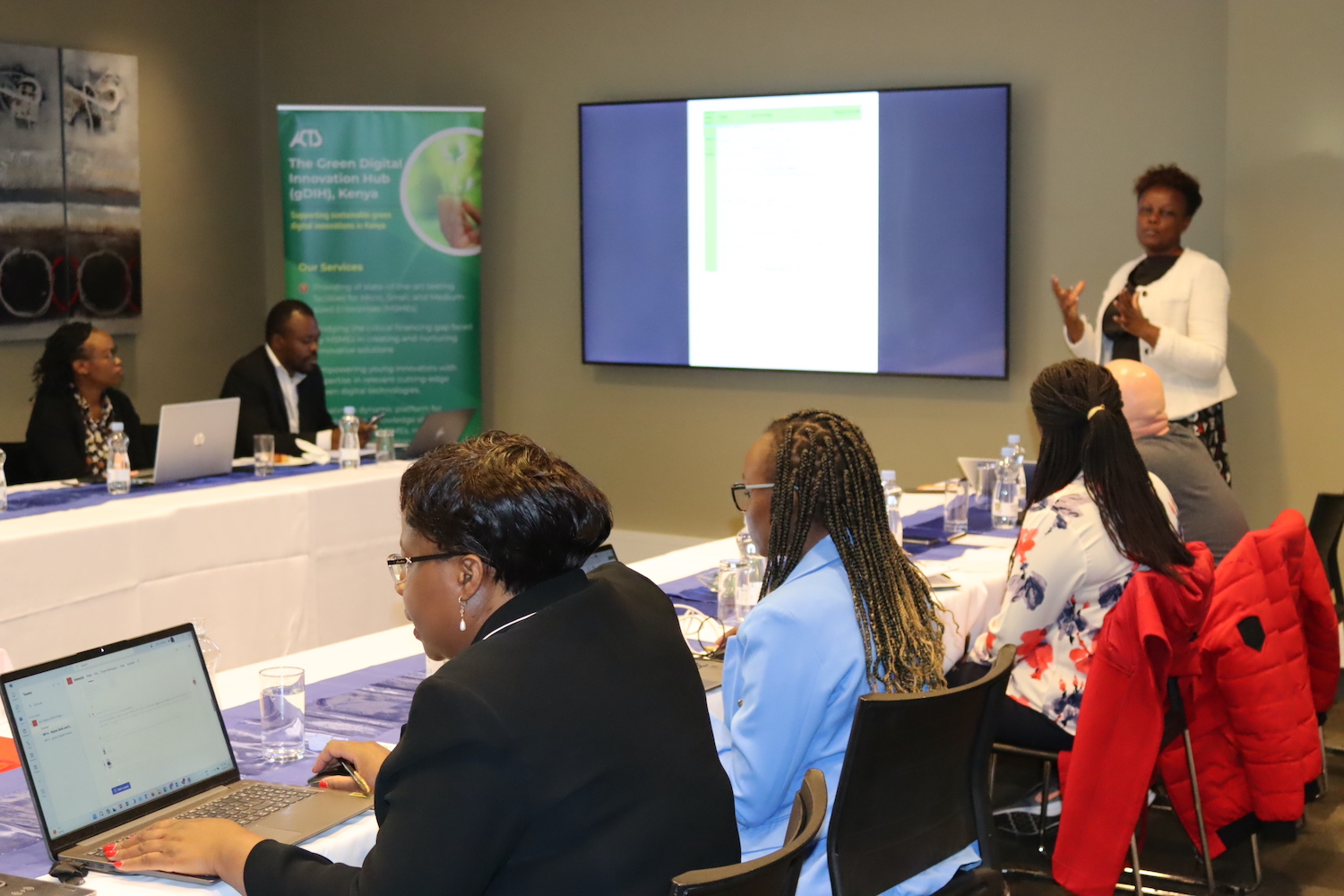The ACTS-led Green and Digital Invocation Hub (gDIH) conducted training for MSMES to strengthen their capacity in environmental, social and governance (ESG) and carbon credits.

Gender Youth and Inclusive Development (GYID) programme lead at ACTS, Dr Caroline Mbaya, presiding over one of the sessions during the training.
Investors are increasingly becoming conscious of environmental, social and governance (ESG) safe guards as a prerequisite for funding micro, small and medium enterprises (MSMEs).
For this reason, MSMEs in Kenya need to position themselves strategically by adopting and integrating ESG standards in their business operations to stand in good stead for attracting investment.Cognizance of the value of ESG, the ACTS-led Green and Digital Invocation Hub (gDIH) conducted training for MSMES to strengthen their capacity in ESG and carbon credits.
The training also covered key aspects of carbon credits, including carbon markets and their role in combating climate change with an emphasis on 'Carbon Credit Projects,' ranging from reforestation to renewable energy, and the importance of selecting viable projects.
Apart from helping businesses manage risks, ESG is also used to evaluate a company's sustainability and ethical impact. It promotes operational efficiency, positive social impact making companies/businesses more resilient and competitive in today's market.
The first training focusing Training of Trainers (TOT) was held from 27 – 30 May 2024, saw trainers from the hub trained on key issues on ESG and Carbon Credits. The training for MSMES took place at the EKA Hotel, Nairobi, Kenya from 10 -14 June 2024. This two-phase approach ensured effective dissemination of critical information.
"As sole business owners, we are involved in decision making that can make or break our companies. Having an independent board means we can run to them to get their views and improve decision-making for the betterment of the company." – Eliud, participant during the ESG training.
"Once you understand the basic concepts ESG, you can align your operations with practices that earn or utilize carbon credits." – Julius Macharia, Carbon Credits Expert, GFA.
Discussions emphasized how companies can generate revenue by incentivizing emission reductions and adopting sustainable practices, attracting eco-conscious consumers and investors.
The carbon credits training covered carbon markets and their role in combating climate change with an emphasis on 'Carbon Credit Projects,' ranging from reforestation to renewable energy, and the importance of selecting viable projects.
"Once you understand the basic concepts, you can align your operations with practices that earn or utilize carbon credits." – Julius Macharia, carbon credits expert.

